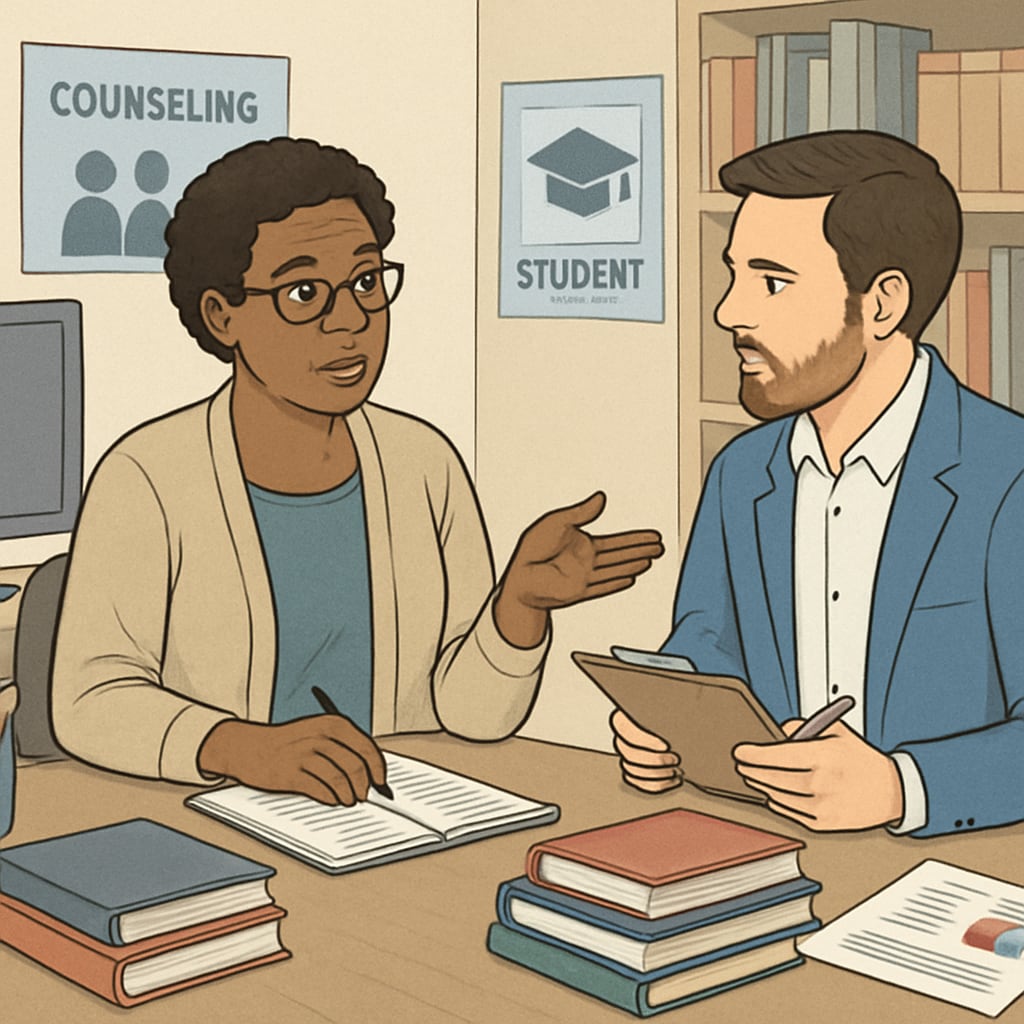For graduate students tackling education research, finding and interviewing K12 school counselors is a critical step toward completing a high-quality project. This guide provides practical strategies for identifying the right professionals, establishing meaningful connections, and conducting insightful interviews. By understanding the mechanisms and dynamics of the K12 counseling system, you can enrich your research and deliver impactful findings.
Identifying K12 School Counselors: Where to Start
Locating school counselors who are willing to participate in an interview can seem daunting. However, there are several reliable methods to streamline this process:
- Online directories: Many schools publish staff directories on their websites, often listing counselors and their contact information. Start by searching for local school districts and exploring their websites.
- Professional networks: Platforms like LinkedIn and educational forums can help you identify counselors who are open to discussing their work. Consider joining groups specifically dedicated to K12 education or counseling.
- Referrals: Ask professors, peers, or education professionals in your network for recommendations. Referrals can help establish initial trust with potential interviewees.

Approaching K12 School Counselors: Communication Tips
Once you’ve identified potential interviewees, effective communication is essential to secure their participation. Here are some tips for reaching out:
- Craft professional emails: Clearly state your purpose, outline the scope of your research, and explain the importance of their contribution. Always personalize your message to the recipient.
- Offer flexibility: Counselors are often busy, so provide multiple options for scheduling the interview. Be prepared to accommodate their availability.
- Build trust: Emphasize confidentiality and explain how their insights will be used responsibly in your research.
Additionally, ensure your communication tone is respectful and professional. For example, you might say, “Your expertise in K12 counseling would provide invaluable insights for my graduate research project. I’m flexible with scheduling and happy to accommodate your availability.” This approach conveys appreciation and adaptability.
Conducting Professional Interviews: Techniques and Best Practices
When it comes to the actual interview, preparation is key. Follow these steps to ensure a productive and professional discussion:
- Prepare your questions: Develop a mix of open-ended and specific questions to gain both qualitative and quantitative insights. For example, “Can you describe the most common challenges students face?” and “What strategies have proven most effective in addressing these issues?”
- Test your equipment: If conducting virtual interviews, ensure your audio and video tools are functioning properly. Technical difficulties can disrupt the flow of conversation.
- Respect their time: Keep the interview concise and focused. Aim for 30–45 minutes unless the counselor expresses willingness to extend the discussion.
- Build rapport: Begin with a few casual questions to make the interviewee comfortable. For example, “What inspired you to pursue a career in school counseling?”
- Follow up: After the interview, send a thank-you email expressing gratitude for their time and insights.

Understanding K12 Counseling Systems: Why It Matters
K12 school counselors play a pivotal role in the academic and emotional well-being of students. By interviewing these professionals, graduate researchers can uncover valuable insights into the challenges they face, the strategies they employ, and the impact they have on students’ lives. This understanding not only enhances research quality but also contributes to broader conversations about improving education and mental health systems.
For example, counselors often address issues such as bullying, academic pressure, and social isolation. Their perspectives can illuminate trends and gaps that researchers might otherwise overlook. Moreover, this dialogue fosters mutual respect between academia and the counseling profession.
By approaching the process with professionalism, empathy, and curiosity, graduate students can build meaningful connections and gather data that truly makes a difference.
Readability guidance: Use concise paragraphs and bullet points to summarize key strategies. Maintain an active voice and incorporate transitional phrases like “however,” “for example,” and “as a result” to ensure smooth flow throughout the article.


